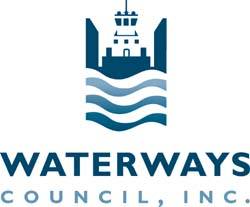WCI Presses for WRDA Passage
WCI Immediate Past President Rick Calhoun Testifies on need for WRDA Bill.
Rick Calhoun, President of Cargo Carriers, a business of Cargill, Inc., and Immediate Past Chairman of Waterways Council, Inc. (WCI), testified today before the Senate Environment & Public Works Committee on “Water Resources Development Act: Growing the Economy and Protecting Public Safety.” Mr. Calhoun addressed the need for a Water Resources Development Act (WRDA), which he called “a real opportunity to offer a long-term growth solution for this vital transportation system and our export market…Much has changed since WRDA legislation last passed through this chamber five years ago and we are well past the point where our nation needs to be,” he stated in testimony.
Calhoun urged the Committee to move forward with a WRDA bill to provide much needed improvement and increased investment in the nation’s waterways infrastructure. “Our nation’s waterways have remained a reliable transportation mode because of the vision of past Congresses and hard work of the U.S. Army Corps of Engineers. The past two years have provided great challenges for the Corps, which managed to keep our water transportation system open despite record flooding followed this year by severe drought. But as we look to the future, it is our belief that without immediate action to alter the delivery schedule of projects needed to enhance our infrastructure, the system’s reliability could be challenged,” he said.
He went on to note that despite industry’s efforts to modernize their own operations to meet 21st century economic challenges, the rivers still utilize 1930s technology. He said that 56% of the 238 Corps’ locks are over 50 years old and well beyond their design life, while 34 locks are over 80 years old. “If nothing is done, this infrastructure will be on the brink of collapse. Moreover, these important projects are not built in a day; they take years – even decades – to construct,” he said.
He also raised the cost escalation and delays at the Olmsted Lock and Dam project on the Ohio River as an example of the system’s deficiencies. Originally authorized by Congress in 1988 at $775 million, the project was to be completed within 12 years. Almost 25 years later, the project is nowhere near completion and has ballooned to a cost of more than $3 billion.
Calhoun praised the industry-Corps of Engineers developed Capital Development Plan, now contained in legislation introduced by Rep. Ed Whitfield (R-KY) and Rep. Jerry Costello (D-IL) called Waterways are Vital for the Economy, Energy, Efficiency and Environment (WAVE-4) Act of 2012 (H.R. 4342). WAVE 4 calls for prioritizing projects, improving the Corps’ project management processes to deliver projects on time and on budget, and recommending an affordable funding mechanism with increased investment from both private industry and the U.S. government, increasing annual spending from $170 million to $380 million. This funding level could complete 25 projects over the next 20 years, compared to just two – Olmsted and the Lower Monongahela project in Pittsburgh – under the current funding scheme and the cost escalation at Olmsted, he said. He also noted industry’s support for the efforts of several Senators to address the infrastructure challenges of our ports and inland waterways that is now underway.
“…The challenge is the critical need to both maintain and repair existing structures as well as to construct new, modern, expanded lock chambers to accommodate today’s larger tow sizes. Completed projects allow for greater agriculture and energy-sector commodity exports. This is critical when more than 90 percent of consumer spending growth will happen beyond the United States’ borders in the next 50 years. Investment spending that supports competitive exports is essential to economic growth,” Calhoun said.
Mr. Calhoun’s testimony can be found at http://www.waterwayscouncil.org/index/SenateEPWWRDATestimonyRickCalhounFINAL.pdf













